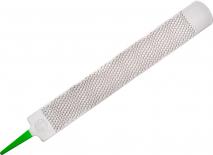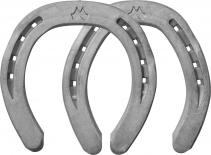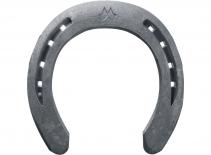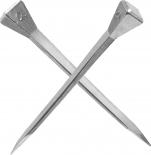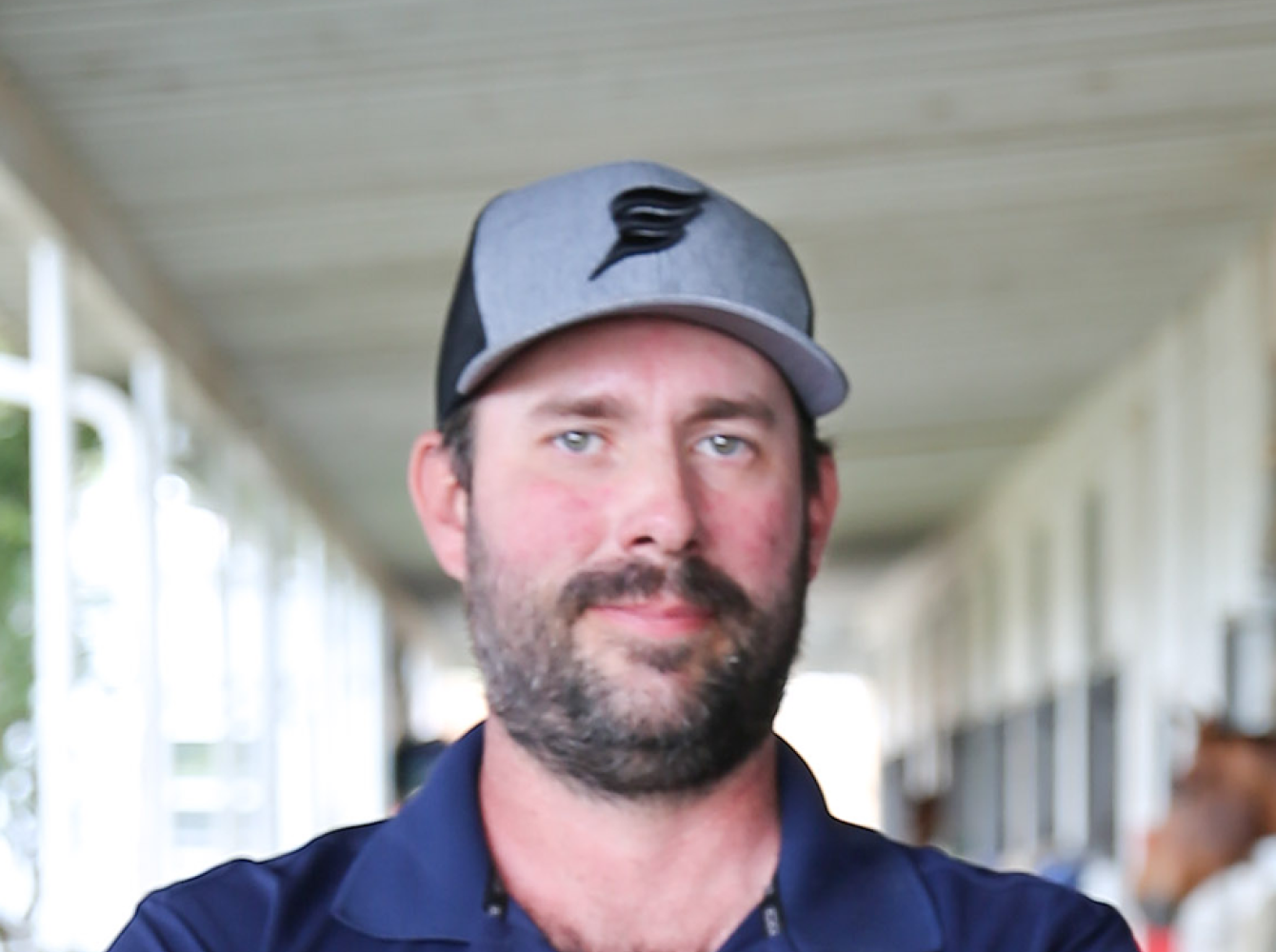
Judson Smith
This self-taught farrier brings a back-to-basics approach to high-stakes horses.
When Judson Smith shows up to work on a horse, he knows two things for sure: There’s no way to predict what kind of issues he might see. And he may never see the same horses again.
Judson specializes in sport horse sales programs, and his job as a farrier is to prepare high-cost, high-performing sport horses for showing, often sending them off within hours of meeting them.
“I have to be able to adapt and overcome challenges quickly,” says Judson.
Fortunately, he’s uniquely equipped for the pressures of this type of farriery. “It's so second nature to me at this point, because of the type of background I have,” he says.
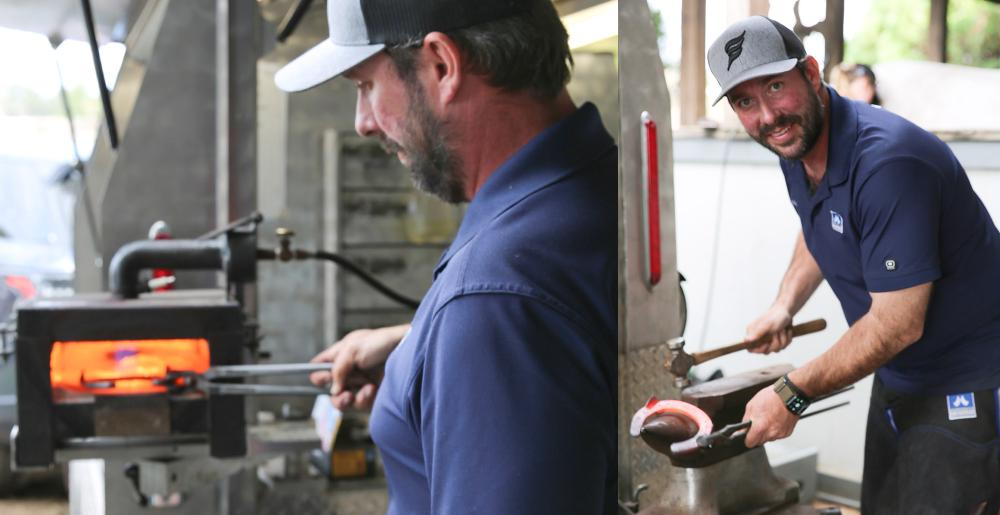
Learning everything he needed to be a successful farrier
Ironically, the mentor with the greatest influence on the way Judson shoes horses is a man who’s never shod a horse in his life: his stepfather. Judson lost his dad at the age of two to a brain tumor, and he credits his stepfather, Ernie Brown, for the skills behind his career.
Ernie, a Tennessee farmer who raised Judson from the age of five, taught him to get up early, work hard, show up consistently, run a business, make a profit, and help the people around him, no matter what.
He also taught Judson to think on his feet.
“Because of him, I'm able to come up with a lot of stuff by the seat of my pants,” says Judson, who now runs Coast to Coast Farriers, a multi-farrier business focused on sport horse sales programs and top-level show horses.
My stepdad was very, very good at figuring out problems. Because of that, when times get tough, I slow down and stay calm instead of getting upset.
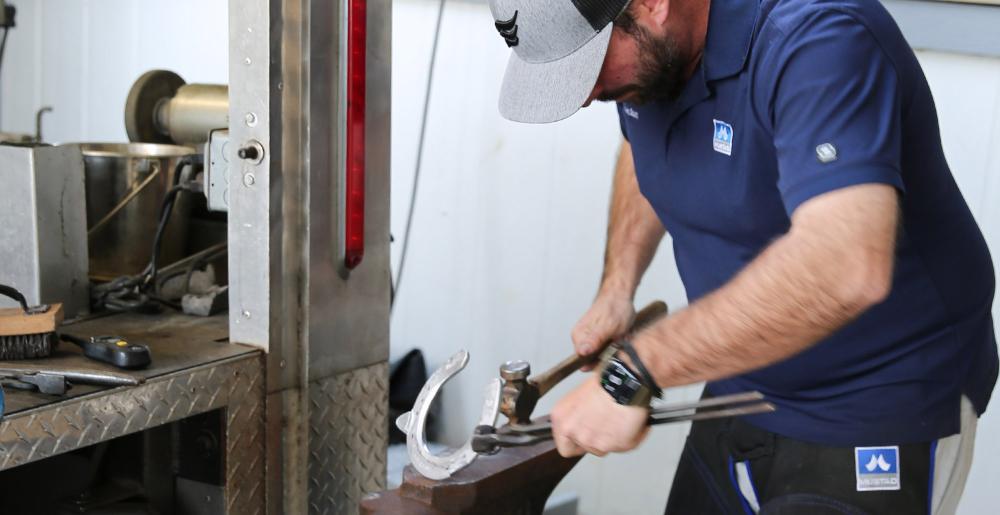
The one thing Ernie didn’t teach him? How to shoe a horse.
With a farm to run, Judson’s stepfather kept everyone in the family busy—except Ernie wasn’t a “horse person”.
Fortunately, his mother, Suzanne Brown, ran a horse-trading business on the side, and there were plenty of horses around.
“We had to figure out how to make time for horses,” says Judson. “Which was a good skill set to learn.” Horses filled a hole for Judson that his father left behind, so he always found time for them. “They were my happy place.”
Shoeing by age 15
Judson loved watching the farriers who would work on his horses. “They were horsemen,” says Judson. “They were all about trying to make each person and animal the best they could be.” No fancy techniques—just good problem-solving.
So when David Bowers, the dairy farmer down the street, started shoeing horses, Judson jumped at the chance to work with him. Before long, Judson was shoeing horses on his own.
“I'm not going to tell you I was very good at it, but you have to start somewhere,” says Judson. “I was very fortunate to get to start out with David.”
He took me in and gave me an actual paying job. At that point in my life, I didn't realize you could work and get paid.
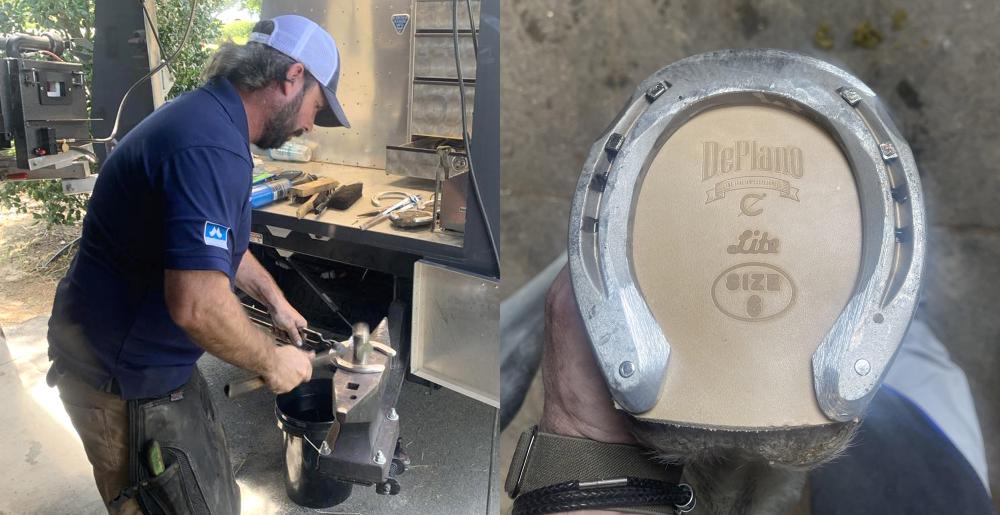
It all grew from there.
Judson began to hone his trade by watching other farriers closely and asking endless questions of the “very patient” vets in town.
“I think that's something I was lucky to learn early on,” he says. “I was just a dumb kid that was trying to learn and the only way that I was going to get to learn was by talking and listening.”
These days, in his work with top-level sport horses, he taps these same skills.
“I have to deal with a lot of different vets and a lot of different personalities, and I can honestly say I find it pretty easy to get along with most of them. I think if I had grown up any other way, I probably wouldn't have gotten that experience.”
He instills this skill in the young men on his team. “I let them know that the best way that they can learn is by being respectful and listening.”
“Hands-on experience is what teaches you everything.”
Judson used what he was learning on the horses coming through his mother’s sales horse program. “I got to practice a lot of things that most young players don't get the opportunity to do,” says Judson.
We would buy problem horses on purpose, with the idea that I was going to figure out how to fix it. And I figured out real quick what I could fix and couldn't fix.
His skills grew steadily, and Judson never saw the need to pursue letters after his name. “I was already out there doing those things,” he says. “You can read a book all day long, but the hands-on experience is what teaches you everything.”
For Judson, good farriery was all about understanding the horse and sticking to the basics.
Building a business on solid skills
Over the following years, Judson would continue showing and training while building up his farrier practice. He’d move his practice from Tennessee to Texas and back to Tennessee, where, in 2018, he took over Jamie Boteler’s work at Brownland Farms and started traveling all over the country to take care of horses. Finally, in 2019, he moved his operations to Ocala, Florida, where he’s built a large book of sport horses—mostly hunters, jumpers, and equitation horses— as well as several sport horse sales programs.
His work is fast-paced and high-pressure. On any given day, he might see a horse that just flew in from Germany with any number of complex issues. His role is to keep the business moving and get the horse ready to show, often that very day.
“I’m having to adapt and overcome whatever mechanical failures that horses may have, as well as systemic failures,” says Judson.
All I can do is address what's in front of me in the moment. My ultimate job is to keep that sales business ticking like a well-oiled machine.
The power of the basics
“I’ve learned that simplicity is always best with these guys,” says Judson. It’s an approach that’s been reinforced by one of Judson’s current mentors, Bob Pethick, who Judson calls a “living legend”.
“One thing he’s instilled in me is basics,” says Judson. “Getting back to a good basic trim, and good basic balance, and not worrying about all the shiny things that everybody wants to post about.”
The pressure to fix all the problems on every horse can be tremendous, but Bob has helped Judson accept the reality of what’s possible. “It works out better for everybody, including the horse, when I can step back and take a breath and say, ‘I can't fix this today.’”
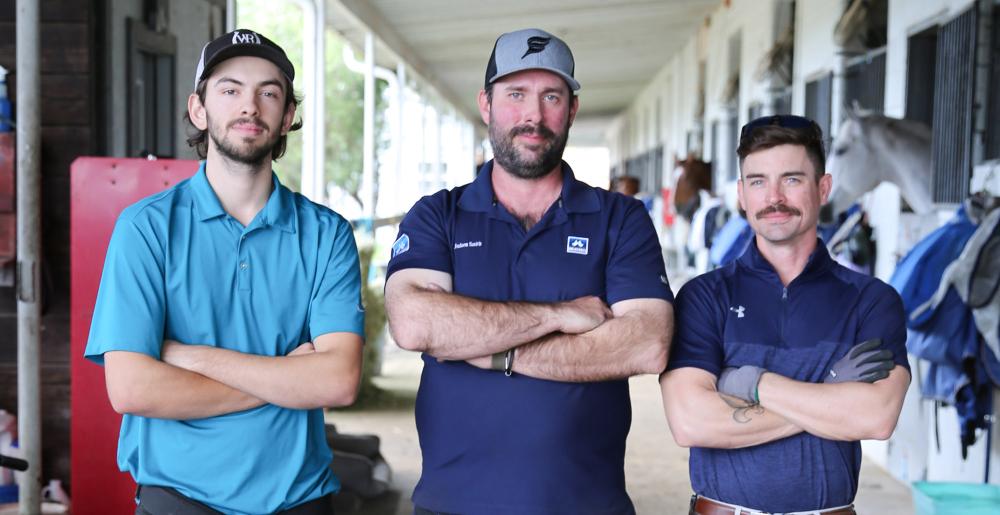
Always improving
These days, with a growing crew of young farriers, Judson’s goal is the same as his stepfather’s: Teach people to become even more skilled than you. Judson is the first to admit, however, that it might be hard for anyone to pass him up—because he’s constantly learning and improving.
When it comes to the unknown challenges and pressures he’ll face on another new batch of horses tomorrow, Judson says: “I have quite a bit of confidence in my ability to get that job done.”
His clients do too.
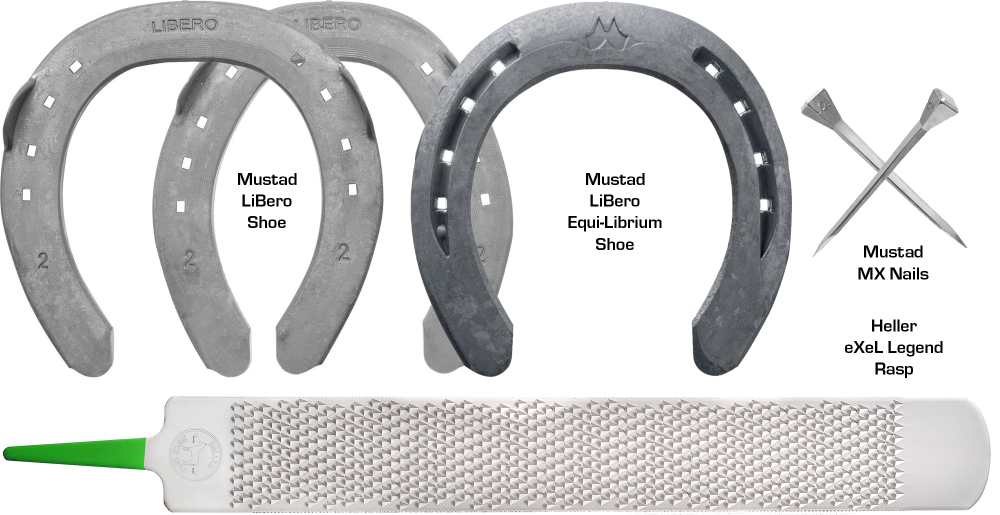
Q&A with Judson Smith
You talk a lot about basic shoeing. What does that mean for you?
It all depends on the horse’s job. For a basic jumper or equitation horse—that's going to be four flat steel shoes.
What shoes are you using these days?
My go-to front shoe right now is either going to be Mustad’s LiBero or the LiBero Equi-Librium. The LiBero Equi-Librium has a very standard pattern for the type of trim that I do. It's very symmetrical, and it tends to be easy to shape. It's a good section of steel, and it’s a very easy shoe for me to modify to what I need. The vets I work with tend to like collateral ligament shoes and suspensory shoes, and they're a very easy shoe to convert into those types of shoes—because of both the type of steel and the shape.
What’s your relationship like with your Mustad Rep, David York?
David would bring products out and watch me shoe. I would use it, and I’d either like it or I wouldn’t—and I've seen changes in the products I use because of that. I probably wouldn't have ever tried them if he hadn't stuck them right in front of me and told me to. I think that's pretty common amongst farriers—we get pretty comfortable using what we use, and it's hard to open up that door and change our mind that there might be something better out there.
Why use the MX nail?
Mustad’s MX nail is a solid nail that has a good pitch to it. But the biggest thing is it's a sturdy nail, yet it's a slim blade—so I'm able to drive a little bit higher nail because of a slimmer blade. And I love driving a good high nail in a good healthy foot every time I nail. One thing that’s guaranteed every time we put a shoe on a horse is there's a huge possibility that that animal might pull that shoe off. And there's nothing worse than all the foot coming with it because it wasn't nailed up well. So, a good, high, slim nail is very, very good for my business.
A good, high, slim nail is very, very good for my business.
So tell me about rasps. What are you using?
I use the Heller eXceL Legend, the green tang. I've used those for years. I shoe in a lot of different environments, and it seems to be a pretty consistent rasp across the board. It handles all the environments from dry to wet. Here in Florida, in the summertime, I deal with what I call swamp feet—we’re shoeing in totally saturated, humid conditions. But then I'll go to Iowa, and it'll be dry and rock hard. And I'm having to torch feet to even be able to take anything off of them. And those rasps really hold up well in all the different conditions that I go to.
What dealer do you use?
I use Farriers Depot here in Ocala. One of the great things about them is that Jason Minor, the owner, is a farrier himself, so he understands what this job is like. And truthfully, it's all about consistency. I let him know what I need, and he does his damnedest to make sure it's there, even if it's not always convenient for him. He always goes above and beyond to make sure that I get what I need. My account is not an easy one to keep up with because there are a lot of variables that come into play, but he has done a great job of keeping up with the chaos.
What are you doing when you're not knee-deep in work?
So really and truly, if I have time, I am a weird, crazy dog person. I have five dogs here in the house, and if I have a slow day, the majority of my day is spent hanging out with the dogs. I have three French Bulldogs—Spud, Lilo, and Chigger; we have a German Shepherd Husky mix—her name's Ellie; and then I actually have a seven-month-old Doberman that is hilarious. His name is Goose. I tell people all the time he's the smartest dumb dog that I've ever run across. He learns things so quick, but at the same time, he might just run into a wall.
Do you have any goals for your career in the future?
I would really like to pursue something more of an educational format where I can help guys get the knowledge they truly need as far as how to run a business. A lot of these kids who come to work for me, they've never even done their taxes before. They need some good, basic knowledge on how to be successful in life. Another thing I would like to see guys learn is basic physics and some of the real-world problems that we're going to run into.
I want to create a legacy where people don't think I was just in it for the financial aspect of the industry. I want to provide a good knowledge base that carries on for generations and allows the industry to grow.
